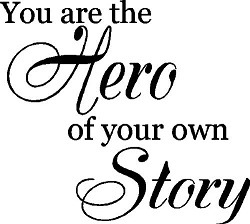
Why do we run marathons?
It’s a question I’ve asked myself often.
There comes a point in every marathon, usually around km 30 when I start to ask myself why I’m here, doing this to myself. At km 36 start promising myself that I’ll never do this again. Its hard work, its not fun, why would anyone do this to themselves, and no way, not ever again, will I do another one of these.
So far I’ve run 2 marathons, and 11 halfs.
Are we just gluttons for punishment? Or are we just plain crazy? People who don’t run, or have never run the 42.2 k monster, don’t get it. Before I ran one myself, it wasn’t so much that I didn’t get it, but it was more that I didn’t think I would ever be able to run that far. I didn’t think I was physically strong enough. At the time, I didn’t understand that physically it’s simply a matter of training and building up to a certain endurance level.
But I also know that it’s much, much more than that. In fact, I would say that running a marathon is actually more mental than physical. For me personally, it’s about 99% mental.
It takes a certain type of person to run marathons. We are obsessed people who read everything we can about running and improving, and we’re tough. We do what it takes, and not crossing the finish line is never an option.
Karen Armstrong, a historian, has the following theory The mythology of the hero most probably began in the paleolithic age, and was part of the Indian subconscious from time immemorial. Rama, Krishna and Arjuna. All seemingly ordinary people, put in an extraordinary situation. All cultures have developed a similar mythology about the heroic quest. The hero feels that there is something missing in his own life. So he leaves home and endures death-defying adventures. He fights monsters, climbs inaccessible mountains, traverses dark forests and, in the process, dies to his old self, and gains a new insight or skill, which he brings back to his people. They rise to the occasion.
When people told these stories about the heroes of their lands, they were not simply hoping to entertain their listeners. The myth tells us what we have to do if we want to become a fully human person. Every single one of us has to be a hero at some time in our lives.
There are parallels of a hero’s journey and running a marathon. You cannot be a hero unless you are prepared to give up everything; there is no ascent to the heights without a prior descent into darkness, no new life without some form of death. Throughout our lives, we all find ourselves in situations in which we come face to face with the unknown and the myth of the hero shows us how we should behave.
This is where the entire idea of running a marathon as a hero’s journey comes together for me. Even when we train for 4 months and do a couple of 30 km runs, we don’t really know what lies ahead when we stand at the start line of our first marathon. We’re embarking on a road we’ve never travelled before. There’s the reason people say “The race begins at 32 km “.
For most runners, going beyond your previous longest distance is uncharted territory, your very own personal “descent into darkness.” Even if you’re running your 5th marathon, something happens to body and mind around the 34 km mark that pushes you into a place you don’t often visit.
But when you persevere, when you go beyond the parameters of your old expectations and abilities, when you cross that finish line, you truly do die to your old self. The person who wears the medal at the finish line is not the same person who stood nervously at the start line. Sure, afterwards, life goes on, you go back to work in a few days, but you’ve changed. You’ve learned something about yourself that can only be experienced by going farther than you’ve ever gone.
This journey is nothing less than the adventure of the hero–the adventure of being alive.
It’s a journey of your own making, and the only person you can trust to reach the end is yourself . You have to trust that everything you’ve taught yourself up to that point is going to work, and that everything you rely on will do its job successfully: your legs, your mind, your strength, your endurance, your focus, your spirit, and your belief in yourself. When it all comes together, when you finish the race, no matter what metaphorical monsters, inaccessible mountains, or dark forests you had to travel through, or all the years of being nonathletic, unmotivated, lazy, or whatever shadow chases you, no matter how long it took you to get there, you become a hero to yourself.
SCMM 2013- 4 hours 33 mins.

GR8 keep it up & LET THE KMS not deter your determination